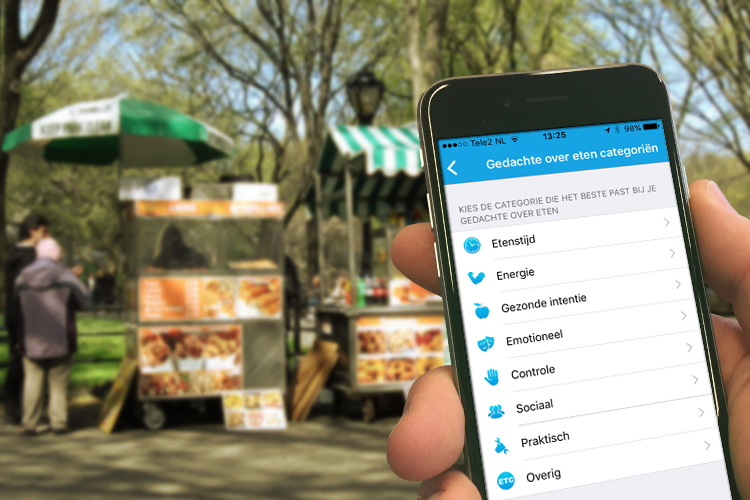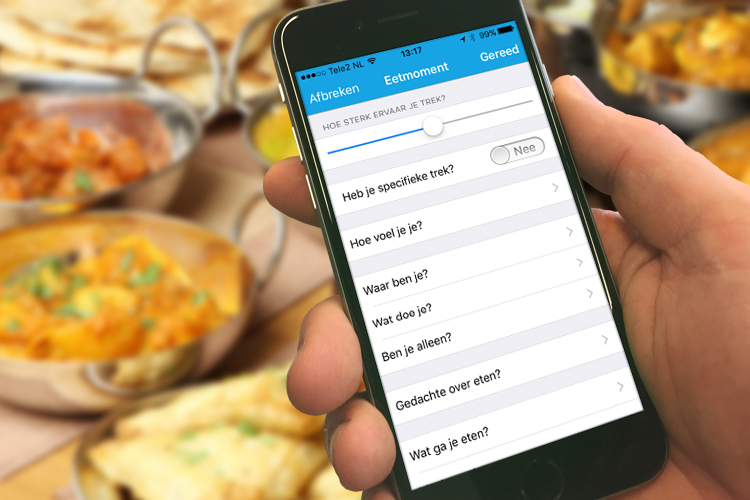Train your Brain, Think Slim!
Purpose
The goal of the ThinkSlim! Project is to help people on a diet to maintain a negative energy balance by improving dysfunctional eating behavior. The system utilizes Cognitive Behavior Therapy (CBT) to help participants analyze and transform dysfunctional thoughts about eating into functional thoughts. The system collects data for research purposes and acts as an Automated Coach to the user.
Method
Data collection takes place on an iPhone with the ThinkSlim App, developed in house by E&I. Collected Samples are sent to the dedicated server from where they are available for research purposes. The ThinkSlim App analyses all collected samples and attempts to match the User to a predetermined set of User Groups, each with their own set of rules. When the User fills in a new questionnaire, the data is compared to the rules and if a rule is triggered appropriate feedback is presented to the User instantly.
If the user indicates he is having dysfunctional thoughts in the questionnaire, the User will have to challenge these thoughts by means of the CBT part in the App. During the first week of the Experiment the user receives training, provided by the SOTO system, about CBT and how to use the ThinkSlim App. Certain information collected during this training is sent to the ThinkSlim server by SOTO to be used in the ThinkSlim App.
Questionnaires
The ThinkSlim App provides several different types of questionnaire, each with their own purpose, frequency and trigger. Some questionnaires are scheduled and will be presented by means of a Notification on the iPhone. Other questionnaires are manually initiated by the User from the App:
- Random: During the day the User is asked questions about his situation, craving, emotions and thoughts about eating.
- Random + Sleep: The first Random Sample of the day includes questions about sleep duration and quality.
- Eating Moment: The User is requested to fill in a questionnaire whenever he intends to eat something.
- Difficult Moment: The User is requested to fill in a questionnaire whenever he is having a difficult moment in relation to eating.
- Drinks: At the end of the day the user is requested to fill in a questionnaire about what and how much he drank during the day.
Responsibilities
The project is a collaboration of the Department of Clinical Psychological Science(CPS), the Department of Knowledge Engineering(DKE) and the Department of Engineering and Instrumentation(E&I). CPS is responsible for the project management, methodology, experiment design, therapy and analysis. DKE is responsible for data analysis, automated user modelling and self-learning algorithms. E&I is responsible for the technical implementation of the experiment, automated therapy and data collection. For more details about the project, please contact projectleader Anne Roefs (CPS).



